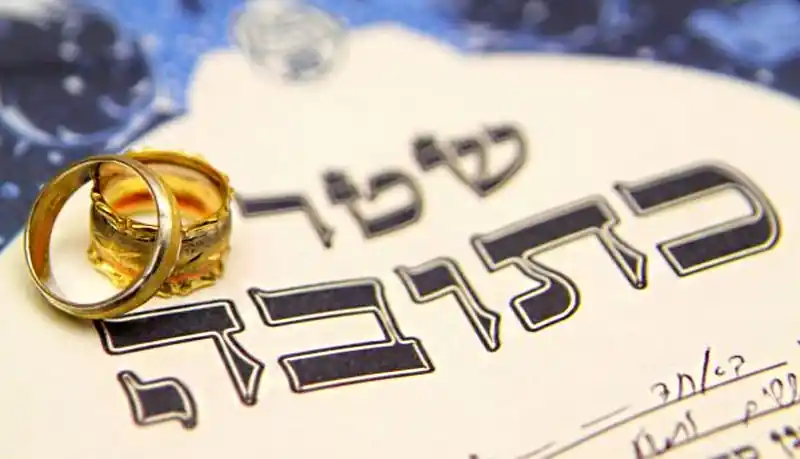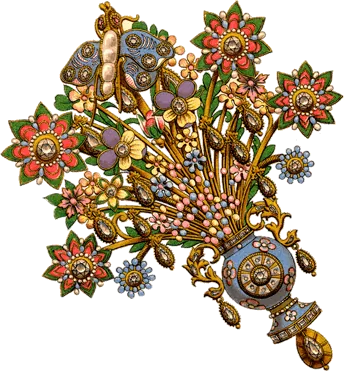This week, in Parshat Ki Tetze, the Torah outlines the laws concerning Marriage and Divorce. The Talmud says that when a couple gets divorced, it is as if the Altar sheds tears.
What is Permissible?
Divorce is an issue that, unfortunately, effects many people in the body of Messiah. Often, people are married before they come to know Yeshua as their Lord and then find that they have made a very unwise choice in their spouse. Even more perplexing, is the question of re-marrying after divorce – is this permissible, or is it considered adultery?
Let’s explore what Yeshua had to say about divorce and re-marriage:
Some Pharisees came to Him to test Him. They asked, “Is it lawful for a man to divorce his wife for any and every reason?” Matthew 19:3
When we read the word “testing,” we think that perhaps the Pharisees were insincere in their inquiry of Yeshua, but they were asking with sincerity. They wanted to know what He thought about divorce because the two most prominent schools of the Pharisees – the School of Hillel and the School of Shammai – hotly debated the issue.
The question actually from this week's Torah portion (Ki Tetze) in Deuteronomy 24:1:
“If a man marries a woman who becomes displeasing to him because he finds something indecent about her, and he writes her a certificate of divorce, gives it to her and sends her from his house…”
The debate arose between the two Pharisaical schools because of the ambiguity of the Hebrew word used for “something indecent”. The conservative School of Shammai took a very narrow approach to the verse. It taught that the “something indecent” refers to adultery or sexual immorality. So, by this opinion, a husband could only divorce his wife on the basis of unfaithfulness – she must be unfaithful to him. With this understanding, the School of Shammai left little room for divorce.
The far more liberal School of Hillel interpreted the verse quite differently. They taught that “something indecent” meant just about anything that the husband found undesirable about his wife. Hillel taught that even if a wife was lacking in her abilities as a cook that that qualified as “something indecent” and was regarded as legal grounds for a divorce. We can find this debate recorded in the Mishnah:
The School of Shammai says a man should not divorce his wife unless he has found her guilty of some immoral behavior as it is written, “because he finds something indecent about her.” The School of Hillel, however, says that a man may divorce his wife even if she has merely ruined his food as it is written, “because he finds something indecent about her.” Gittin 9:10
The Pharisees wanted to know where Yeshua stood on this debate. Yeshua answers them in verses that follow in Matthew chapter 19:
"Haven’t you read,” He replied, “that at the beginning the Creator ‘made them male and female, and said, ‘For this reason a man will leave his father and mother and be united to his wife, and the two will become one flesh’ ? So they are no longer two, but one…” Matthew 19:4-6
Yeshua first reminds the Pharisees of the sanctity of marriage. He quotes Genesis 2:24 and 5:2:
For this reason a man will leave his father and mother and be united to his wife, and they will become one flesh. Genesis 2:24
He created them male and female and blessed them. And when they were created, He called them “man.” Genesis 5:2
The reason He answered with these verses is that the Rabbis believed that God’s original creation of Adam contained both genders, male and female. The name “Adam” literally means ‘man’ but, it is also the proper name given to the first “man”. The Rabbis were able to see both male and female contained within the original “Adam”. This fact is attested to in the midrash:
When the Holy One, blessed be He, created Adam, He created him androgynous, as it is said, “He created them male and female and… He called them Adam.” Genesis Rabbah 8:1
According to the midrash, they were both Adam, that is, until Eve was removed from Adam. In fact, the woman is not called Eve until after the fall of Adam. The only way for the original creation to be once again complete is by joining together in marriage and so Yeshua concludes His statement with Genesis 2:24. We can find a similar thought in the Talmud:
Rabbi Eleazar said, “Any man who has no wife is not a full man; for it is said, ‘He created them male and female and… He called them Adam. ’” Yevamoth 62b
Yeshua continues in verse 6:
“…Therefore what God has joined together, let man not separate.” Matthew 19:6
With this statement Yeshua leaves no room for the liberal interpretation of Hillel. He speaks of the high regard that God has for marriage – something attested to in the Talmud as well:
Rabbi Eliezer said, “When a man divorces his first wife, the very altar sheds tears.” Sanhedrin 22a
Yet, God, through Moses, did make provision for divorce and the Pharisees were quick to respond:
“Why then,” they asked, “did Moses command that a man give his wife a certificate of divorce and send her away?” Matthew 19:7
This is a logical response because no one can disallow what God has allowed and that would be abolishing the Torah. Yeshua responds:
Jesus replied, “Moses permitted you to divorce your wives because your hearts were hard. But it was not this way from the beginning. I tell you that anyone who divorces his wife, except for marital unfaithfulness, and marries another woman commits adultery.” Matthew 19:8-9
Yeshua, in verse 8, speaks of a hardness of heart that has taken place in man since the fall and the garden. Knowing man and woman were now imperfect and prone to sin, God, through Moses, allowed divorce for marital unfaithfulness. Though God allowed divorce, this was not how He intended those of His Kingdom to behave. If we are to be members of His Kingdom, He desires us to return to the model that He established in the Garden before the fall. Yeshua makes this clear in verse 9 by stating that anyone who divorces his wife except for marital unfaithfulness commits adultery.
In the book of Mark this is rendered slightly different and, at first glance, would seem to be even more stringent. Chapter 10, verse 11 says:
He answered, “Anyone who divorces his wife and marries another woman commits adultery against her." Mark 10:11
Here, Yeshua would seem to make absolutely no room for divorce whatsoever. But, Brad Young, in his book“Jesus the Jewish Theologian,” points out a possible answer for this discrepancy between the Torah and Yeshua’s declaration. Young’s alternative translation is based upon a grammatical point in the Hebrew that would make this verse read: “anyone who divorces his wife,” in order to marry another, commits adultery. As we read:
In Hebrew the force of the expression would have linked the two actions together in continuous motion: kol hasholeach et eshto venose acheret noef, “Every one who divorced and marries another commits adultery.” Perhaps in English one could better capture the meaning of the saying by translating it, “Every one who divorces his wife [in order] to marry another commits adultery.” Young, 1995. Jesus the Jewish Theologian
There is one final point that we should consider before reaching a conclusion. That point is, that adultery was an offense punishable by death by stoning (Leviticus 20:10). If true adultery had been committed, then there would have been no need for divorce. This makes Yeshua’s answer even harder to understand.
So, what is the answer to this question that haunts so many in Yeshua’s redeemed community?
Yeshua’s response was intended to get each man to consider the motive of his actions – to get him to search his heart and to call himself to a higher standard of Torah observance, just as He had done in so many of His teachings.
Are there any other reasons for one to divorce their spouse, other than adultery? In answering the question of whether or not divorce is permissible, we must take a more personal look at the matter. Marriages in Israel were arranged by the parents and were made by those who were under the covenant obligation to live by certain standards. And so, a higher standard should be and was applied.
Believers today, however, often find themselves coming to faith years after being married and living under conditions that are not tolerable. Often, they are in abusive situations, with drug addicts or criminals. This is not how Yeshua intends or desires His redeemed to live. Yet, often, when believers go to their pastor for advice, they end up receiving the verses quoted above as a warning to remain in their current situation.
Adultery represents a complete breakdown in the marriage and a violation of the marriage vows. This happens because of a total lack of love and respect for one's spouse and it was for this reason that Yeshua said divorce was allowed. Abuse, neglect, and criminal behavior also represent a violation of vows and a lack of love and respect.
The Rabbis teach that the preservation of life takes precedent over the commandments and yet Pastors still allow, and at times, encourage people to remain in marriages that could take their lives. It is time that we realized that Yeshua said, "Every one who divorces his wife [in order] to marry another commits adultery" and, we should live our lives, and counsel others to live their lives, by this standard. While remembering the high regard that Yeshua has for marriage and that: “When a man divorces his first wife, the very altar sheds tears.”
Is re-marriage permissable? It was never God's intention that man live alone. Rabbi Eleazar said, “Any man who has no wife is not a full man; for it is said, ‘He created them male and female and… He called them Adam. ’” Yevamoth 62b


